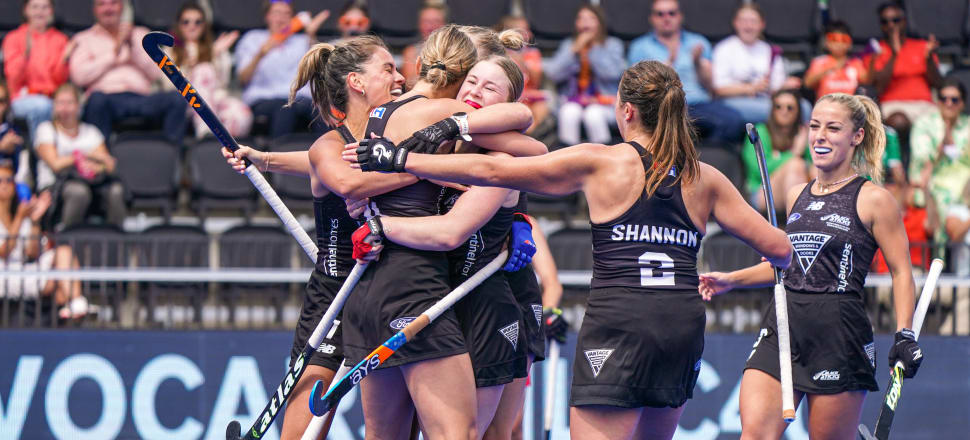
Yes, women's and men's hockey sides need to be coached differently, Black Sticks coaches Verity Sharland and Darren Smith reveal to Suzanne McFadden on the eve of the Commonwealth Games.
As the Black Sticks women work their magic on the hockey pitch at the University of Birmingham over the next fortnight, you’ll spot their head coach Darren Smith sitting alone at the top of the bleachers.
He prefers it up there, where he has a better ‘big picture’ view of the game. While it may look as though he’s talking to himself, he’s constantly feeding what he sees back to assistant coach Verity Sharland, who’s down in the dugout with the rest of the Black Sticks.
“She can hear me prattling on through the radio, as I live every moment of the game,” Smith says of Sharland. “She’s pretty patient with me, down there on the bench.”
It helps that she knows him well. Although Smith stepped in as interim head coach of the Black Sticks just three months ago, he and Sharland go back around 15 years.
Smith was Sharland’s coach when she was in the Black Sticks development side, “so I first knew her as a really talented player,” he says.
Sharland made it as far as the Junior Black Sticks, winning bronze at the Australian Youth Olympics, but she travelled the world watching her sister, Kayla Whitelock, play for the Black Sticks. And then she moved into coaching.
Smith and Sharland worked together as coaches for the first time in 2020, guiding the Central Falcons to victory in the inaugural Premier Hockey League in 2020.
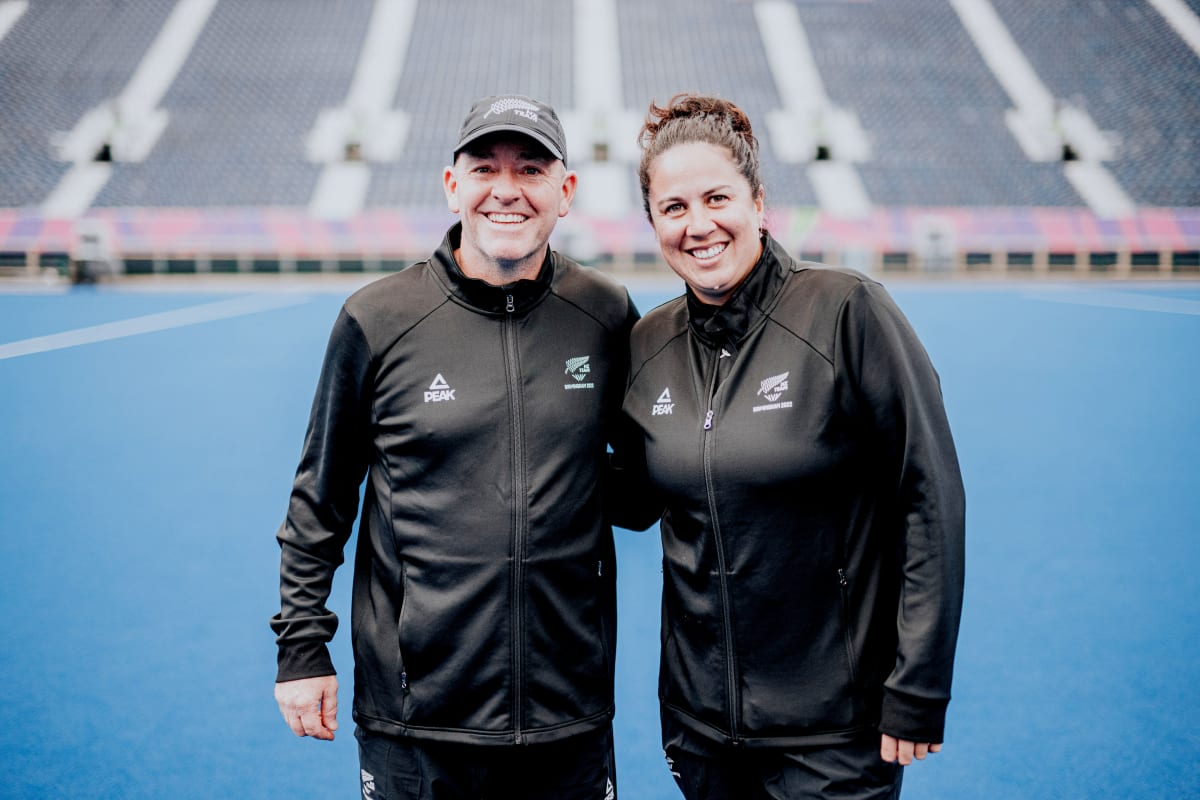
“I got to know her well then, and we had a lot of fun, a lot of good humour,” says Smith, who played 212 tests for the Black Sticks men before becoming a coach.
He has an impressive coaching resumé, coaching the Irish national women’s side for three years, and then the Black Sticks men for five – including winning silver at the 2018 Commonwealth Games.
Now Sharland and Smith are part of a strong coaching quartet who led the young Black Sticks women through to the quarterfinals of the World Cup in The Netherlands a fortnight ago, where they finished a laudable fifth (they were ranked ninth in the world going into the tournament).
After a few days rest, they're taking them into the Commonwealth Games in Birmingham, where their defence of the 2018 gold medal starts on Friday night.
Two other former Black Sticks men, Shea McAleese and Bryce Collins, complete the team (but Collins returned home after the World Cup).
Sitting together in Antwerp, Belgium, in the training week leading up to the Commonwealth Games, Sharland and Smith share a laugh and a sidelong glance when they’re asked if there’s a noticeable difference between coaching men and women on the hockey field.
Smith starts with the similarities: “Everyone wants care, respect and to be treated well. And as coaches, we try really hard to do that.”
But back to the differences…
“I don’t know if I’m going to open a minefield, here. But the guys can have a bit of cowboy to them; a bit of bravado. ‘Just have a crack’ sort of stuff,” Smith laughs.
“Where our women’s team is a bit more into detail, a bit more consideration and appreciation of the details behind the decisions. They want more information.
“Of course, we also have some men in the Black Sticks who are hyper-detailed and want all the background. And some Black Sticks women who are really creative and adventurous in the way they play a game.”
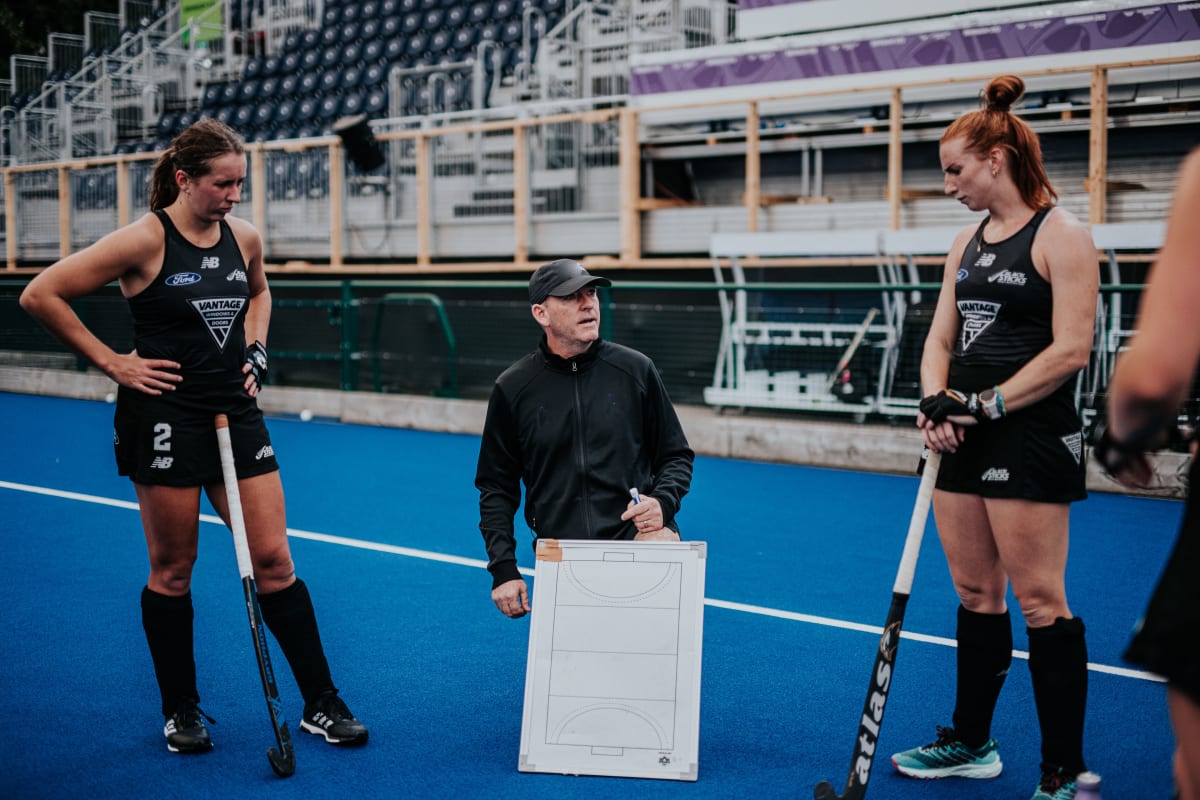
Another major difference Smith is discovering through the Black Sticks women is the way the players communicate with each other.
“With the women, the communication is through the roof. I struggle, I miss stuff, because there’s so much going on,” he admits. “But they don’t miss a thing.
“It’s probably me showing my age [he’s 48], but it’s amazing the channels of communication they use – WhatsApp, Messenger - the information is coming at you all the time.
“In the Black Sticks men, it’s a bit of a slower pace.”
Sharland, who’s also a teacher at Feilding High School, coaches the boys’ hockey team there and is also uncovering the different subtleties between genders.
“The big thing I notice is you spend a lot of time instilling belief in the female athletes,” she says. “The potential we coaches see in the female athletes, they don’t always see in themselves.
“You’re trying to build up their self-belief and their courage to take risks – risks which will make them better in the end game.”
Female players also thrive when coaches give them time to talk away from the pitch about things that aren’t all about hockey, Sharland says.
“You can definitely see it builds trust when we give our time to them off the pitch. Sitting down and looking at the bigger picture over breakfast or lunch; they really value that informal connection,” she says.
The relationship with players is something Smith always has to work on, he says. “When you’re the head coach, you get dragged all over the show, so staying connected with players is always a work-on for me,” he says.
“Where it’s been so good with this team, though, is having Verity, Shea and Bryce there – it’s always felt like the athletes have close connections with the coaching staff.”
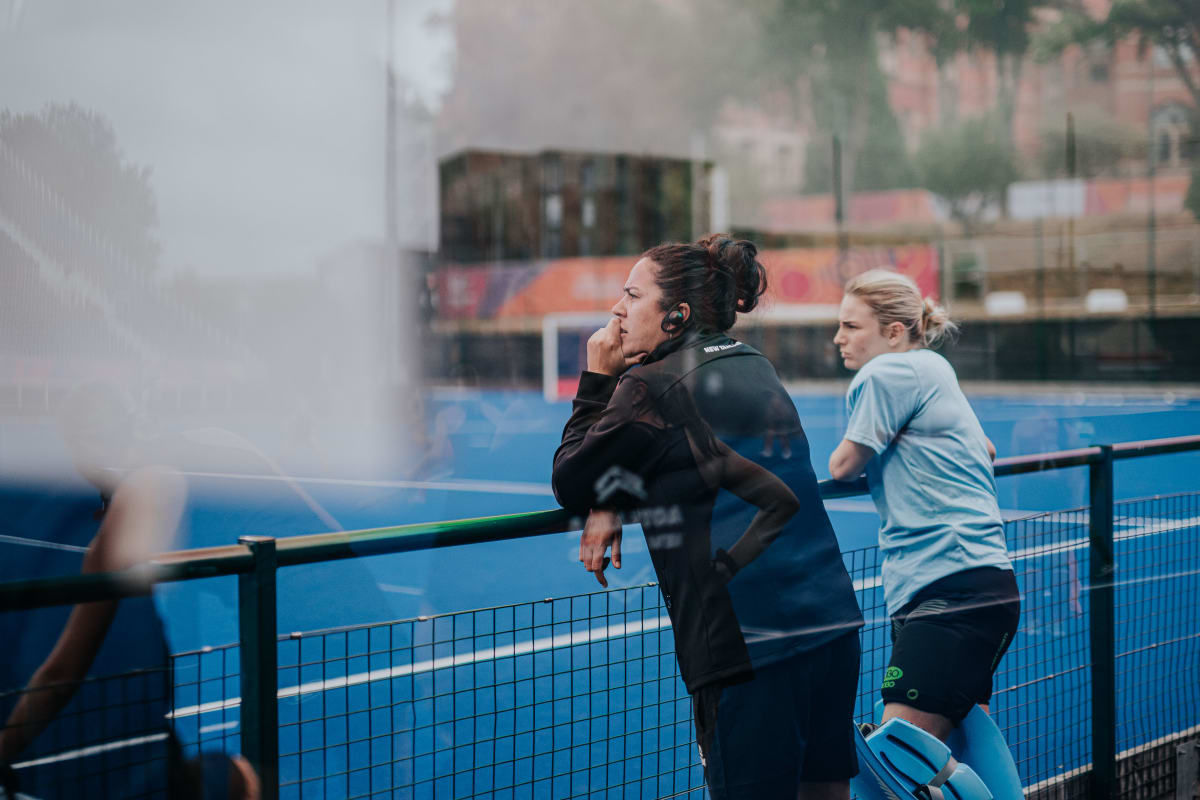
But on the field nothing separates them in their desire to win.
That connection and self-belief has been crucial for this new-look Black Sticks side – who’ve been through a lot in the past year.
First, they lost over 1700 caps since last year’s Tokyo Olympics, and then head coach Graham Shaw decided to return home to Ireland.
Opportunities to play international hockey after Tokyo were scarce. “Even our home series against Australia was a shambles – we had nine positive Covid cases through the series, and all the staff got Covid,” Smith says.
When the Black Sticks arrived early in Europe to play some crucial warm-up games before the World Cup, they faced more challenges.
“For a lot of players, it was their first major international hockey experience,” Sharland says. “There was the challenge of playing at 9.30 at night in Spain; of buses running late; new food; the heatwave; different sleeping environments. All those things you have to learn to adapt to in touring.
“But working through it and settling into life on tour, that preparation was invaluable to get us into a performance mindset before the tournament began.”
And it worked wonders on the field, as the Black Sticks went through their pool at the World Cup unbeaten, taking the direct route to the quarterfinals - where they lost to Germany 1-0.
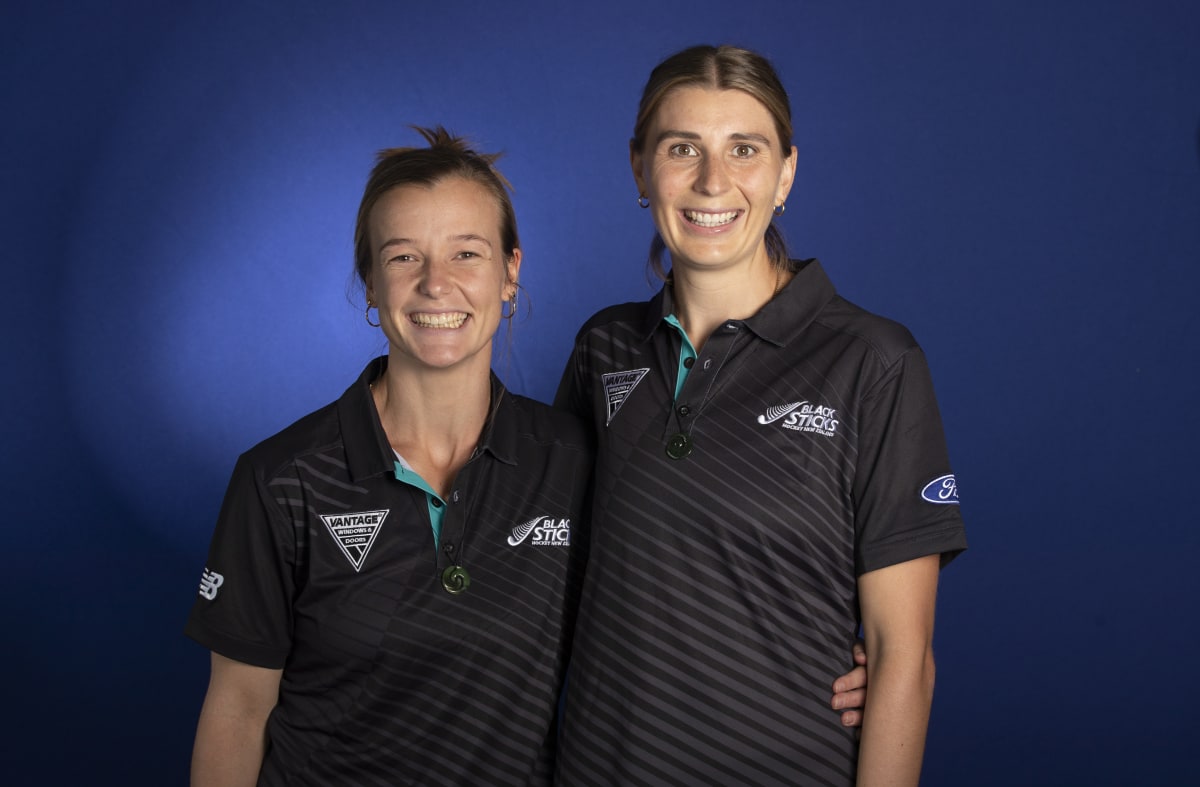
Both coaches were impressed with what they saw from the side, co-captained by Megan Hull and Olivia Merry (who played her 250th game for New Zealand at the tournament).
“Watching the matches, you could see they were pretty relentless in what they were trying to do, which helped build the trust in each other,” says Sharland. “They played more of a passing game, with the confidence to shift and move the ball. That made a big difference.”
The Black Sticks capitalised on most of their opportunities, too, scoring at key moments, Smith adds. And he pays kudos to Sharland, the team’s defensive coach and in charge of defensive penalty corners, for the team’s “excellent defence”.
Sharland has also taken the lead on nurturing the team’s culture. The Black Sticks have had their fair share of culture issues in recent years, and Merry says the team is in a totally different place than it was a year ago.
“It’s something I enjoy working on, seeing what shifts you can make,” says Sharland, whose iwi is Rangitāne in the Manawatu.
“I was probably a little naïve to what the culture was previously. There was definitely a real desire for the team to do well, that’s always been part of New Zealand hockey’s history. So it’s now about getting the purpose and the vision – which is quite key this year to have everyone on the same page.”
The greatest culture shift she’s witnessed has been an understanding of what the team’s values are – “which hasn’t always been there”.
“Everything we do now is for ‘The Fern’,” she says. “And with such an emerging group, it’s also about the future. Setting them up for when Paris rolls around.” That’s the 2024 Paris Olympics she’s talking about.
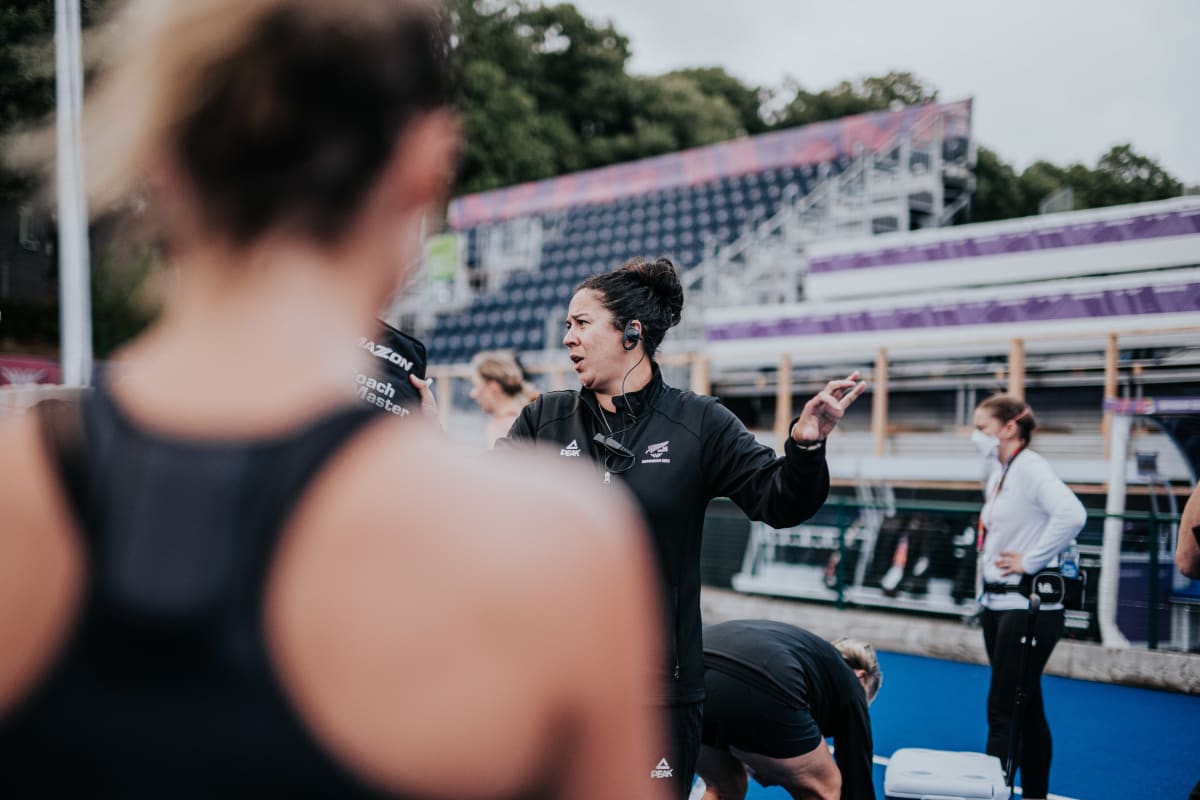
Breaking down what ‘The Fern’ represents – F stands for ‘For the team’, E is for ‘Every moment matters’; R is ‘Relentless’; and N is ‘Never walk alone’.
“We’ve had some difficult times in this tour – we lost 10-0 to the Netherlands before the World Cup,” Smith says. “It was [an] incredibly flattering score, they’re a fantastic team.” They’re now both the Olympic and world champions. “But if you’re going to be part of the team, you’ve got to take the hits, take the losses. And this Black Sticks team has.”
Having a female coach in the mix is important, says Smith (who insists he won’t be persuaded to become the permanent head coach, returning to his role as head of Hockey NZ’s high performance after the Games).
“Verity is a superb coach and we need more great women coaches in our sport which has such a fantastic history of female Black Sticks,” he says. “We just need to give more of them the opportunity to coach.
“We’re also lucky we have a great female selector, female manager, female physiotherapist and female doctor with this team. They’re a good influence on our group.”
When it comes to Birmingham, Sharland is aware there’s a public perception the Black Sticks will win Commonwealth gold again.
“But this team are definitely walking their own journey. They’re pretty determined to do well,” she says.
“Regardless of whether they’d won gold in 2018, their desire would be the same. We're lucky to have five athletes here who can share their experiences to prepare the team for what it’s like.”
Australia, who the Black Sticks beat 4-1 in the Gold Coast Commonwealth Games final, remain the biggest threats, after winning bronze at the World Cup last week.
“We’re taking one match at a time,” Sharland says. “We can’t get too far ahead of ourselves.”
* The Black Sticks women start their Commonwealth Games campaign on the opening day of the games, playing Kenya on Friday, 8pm (NZ time), live on Sky Sport 6.







